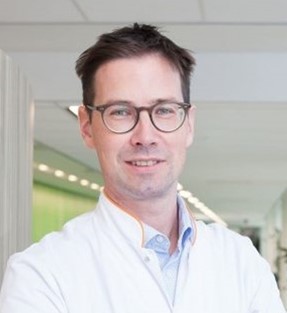Care pathways aim to improve the quality of patient care and reduce variations in clinical practice that can lead to a wide range of patient outcomes. Care pathways include detailed protocols for care leading up to, during, and after a surgery – “perioperative care” – that are based on the latest scientific insights and identified best practices.
What is the optimal perioperative care for lung resections?
The development of a Dutch national guideline for perioperative care for patients undergoing lung resection has recently started with the support of the Stichting Kwaliteitsgelden Medisch Specialisten (SKMS). It is based on care pathway protocols that have been developed for thoracic surgery and includes pre-operative patient and family education, lifestyle counseling such as smoking cessation, minimally invasive surgical techniques, careful management of drug utilization, and optimal post-surgery recovery methods.
Care pathways have been linked to shorter hospital stays, less complications, lower readmissions and costs, and an increased quality of life.

“If we don't know how to use and implement a care dashboard, it's not much use!”
Care pathway protocol development involves collecting and incorporating feedback of results to achieve continuous improvement of the quality of care.
In addition to the SKMS grant to develop the national care pathway / guideline for lung cancer surgery, funding was also received to create a care quality ‘dashboard’ that can give health care providers feedback about their compliance to the guideline recommendations and what the impact is on treatment outcomes.
A care dashboard is a condensed display of information about health care providers’ performance related to the guideline. Like in a car or plane, the dashboard presents graphical data in a way that facilitates trend recognition, positive or negative. This feedback information helps care providers evaluate their own performance regarding previous interventions in the care pathway and identify areas that need improvement. Ideally, a surgeon could quickly identify trends in their personal performance practice as well as draw comparisons to colleagues locally or nationally. Feedback on performance has been shown to be a very effective implementation strategy according to research.
“Collecting and feeding back this information is something that has to be done properly: if we don't know how to use and implement a dashboard, it's not much use!” says Prof. Anema. “What kind of scientific data should be collected? What kind of performance feedback should be given and how often?” With the KWF-funded project, ‘Less practice variation, more optimal care: How do you implement an improvement dashboard for lung cancer surgery in practice?’ (€478,488.60), Prof. Anema and general thoracic surgeon Erik von Meyenfeldt (also affiliated with the Albert Schweitzer hospital, Dordrecht) will determine the best way to implement a care quality dashboard in the daily practice of a multidisciplinary care team.
Prof. Anema: “We expect that good dashboard implementation will result in a higher level of compliance with the upcoming Dutch national guidelines, reducing practice variation and increasing the quality of care and outcomes for lung cancer patients in the Netherlands.”

Prof. Han Anema

Erik von Meyenfeldt, thoracic surgeon
For more information contact Prof. Han Anema.
People involved at Cancer Center Amsterdam:
Prof. Han Anema
Erik von Meyenfeldt

